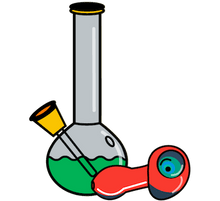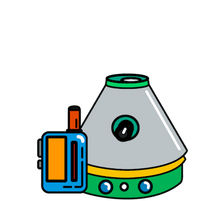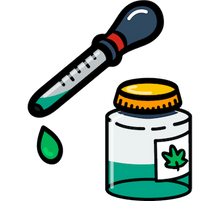Different ways to consume cannabis.

Combusting
Smoking is a popular method of consuming cannabis because it provides fast acting results.

Vaporizing
Vaporizing is becoming more and more popular. Vapour is released by heating cannabis between 180 and 220 Celsius, just below the point of combustion.

Oils & Extracts
Cannabis Oils & Extracts are ingested orally and generally take between 30-90 minutes to take full effect. This also results in longer lasting effects, usually in the 4 to 8 hour range.

Edibles
Many people make their own cannabis edibles (brownies, tea, etc.). The onset and duration will be similar to extracts and oils. There are several edibles recipes online.
Cannabis comes in different types of strains.

Sativa
Originating in Equatorial regions, Sativa Cannabis varieties are typically lanky with short thin leaves. Sativa dominant varieties tend to have a spicy or floral aroma and are popularly known for their uplifting positive mood enhancing effects.

Indica
Originating in Central Asia, Indica Cannabis varieties are typically short structured with wide leaves. Indica dominant varieties tend to give off earthy or musky aromas and have become popularly known for their physical relaxing, calming qualities.

Hybrid
Hybrid Cannabis varieties are a combination of Indica and Sativa. Hybridization has created a growing plethora of varieties with traits from both Indica and Sativa. Generally, hybrids may be more Sativa, Indica or a balance of both.
What is the Endocannabinoid System?
Originally discovered in the mid 1990’s by an Israeli doctor Raphael Mechoulam, current day research and understanding of the Endocannabinoid System (ECS) is an ongoing work in progress. The endocannabinoid system is a group of specialized lipids, receptors and enzymes. Through direct and indirect actions, the endocannabinoid system is known to modulate and influence a variety of physiological systems in your body.
What are Cannabinoid Receptors?

Receptors
CB1 receptors are located throughout the brain, central nervous system, connective tissues, gonads, glands, and related organs. CB1 receptors are mostly associated with the psychoactive aspects of THC.

THC
Delta-9-tetrahydrocannibinol is commonly referred to as THC. It’s a neutral cannabinoid popularized by its psychoactive effects.


Receptors
CB2 receptors are located throughout the immune system and related organs, like the tissues of the spleen, tonsils, and thymus gland. They are also common in the brain, although they do not appear as densely as CB1 receptors and are found on different types of cells. CB2 receptors are mostly associated with the anti-inflammatory properties of CBD.

CBD
Commonly referred to as CBD, Cannabidiol is a non psychoactive compound.







